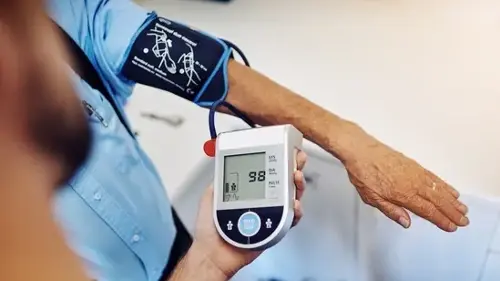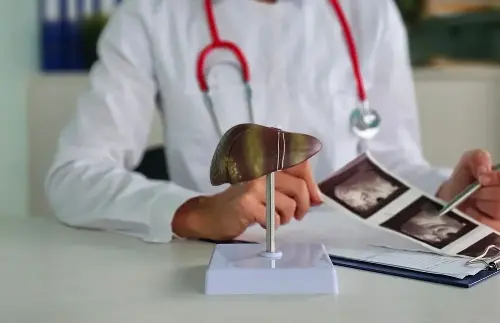
Hypertension or high blood pressure can contribute to multiple health complications. The symptoms are obvious, making it severe for the organs. In an interview with HT Lifestyle, Dr Bhavesh Patel, consultant gastroenterologist, Bhailal Amin General Hospital said that hypertension can affect liver s well, and lead to liver fibrosis. Also read | World Hypertension Day 2024: Early signs of hypertension and step-by-step tips to manage it
What is liver fibrosis?
“Liver fibrosis occurs when the liver undergoes repeated injury, triggering a wound healing response that leads to the formation of fibrous tissue. Over time, this can impair liver function and if not diagnosed on time, progress to cirrhosis. While hepatitis or alcohol consumption are common culprits causing liver diseases, hypertension may also play a role in the damage,” explained Dr. Bhavesh Patel.
How hypertension contributes to liver fibrosis:
Even though the effect of hypertension on the liver is underrated, it can have severe implications. Dr Bhavesh Patel added, “Hypertension exerts its effects through increased vascular pressure, which can alter blood flow within the liver. Elevated BP can lead to micro vascular injury meaning small tears or damage in the blood vessels triggering an inflammatory response. This activates stellate cells (the main drivers of fibrosis). When such cells become activated, they start producing collagen and other matrix components, replacing healthy liver tissues with fibrous scar tissues.” Also read | World Kidney Day 2025: Hypertension and kidney disease, are they connected? Doctor explains symptoms, prevention tips

“Insulin resistance, obesity and dyslipidemia contributes to the development of Non-alcoholic fatty liver disease (NAFLD) which can further worsen to Non-alcoholic Steatohepatitis (NASH) and ultimately liver fibrosis,” the doctor explained the risk factors.
Symptoms to watch out for:
“Liver fibrosis may not have any symptoms in its early stages until significant damage has occurred. However, subtle signs and symptoms to look for are fatigue, weakness, tiredness, abdominal discomfort, feeling of fullness in the upper right portion of the abdomen, swelling, jaundice and easy bruising,” the gastroenterologist highlighted. Also read | Fatty liver disease without symptoms? Here’s how to catch it before it is too late
Prevention tips to keep in mind:
- Effective BP control
- Healthy diet
- Regular exercise
- Weight management
- Alcohol reduction
- Regular checkups and screenings
Note to readers: This article is for informational purposes only and not a substitute for professional medical advice. Always seek the advice of your doctor with any questions about a medical condition.